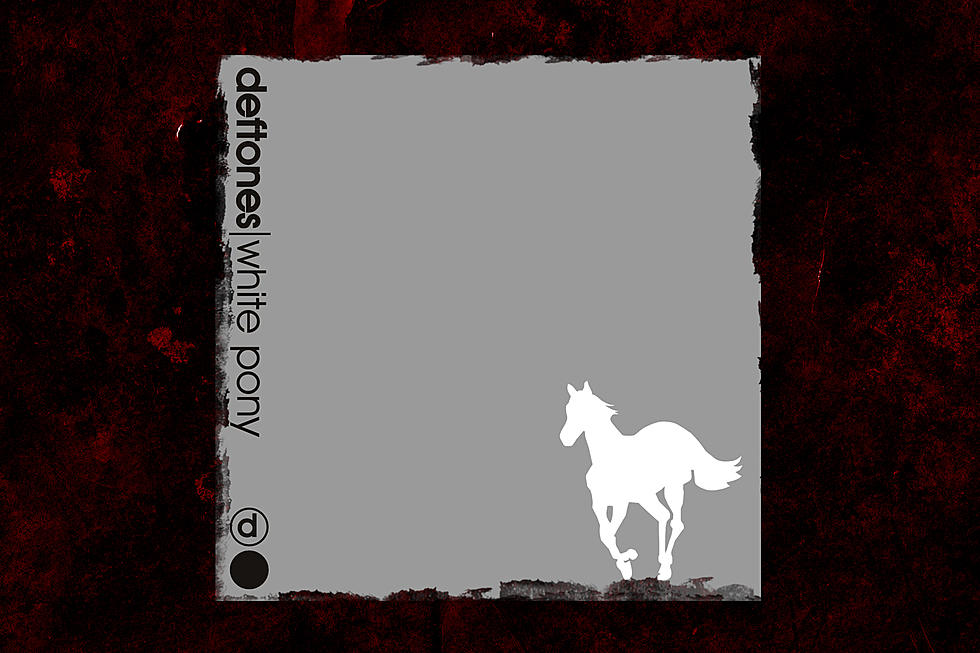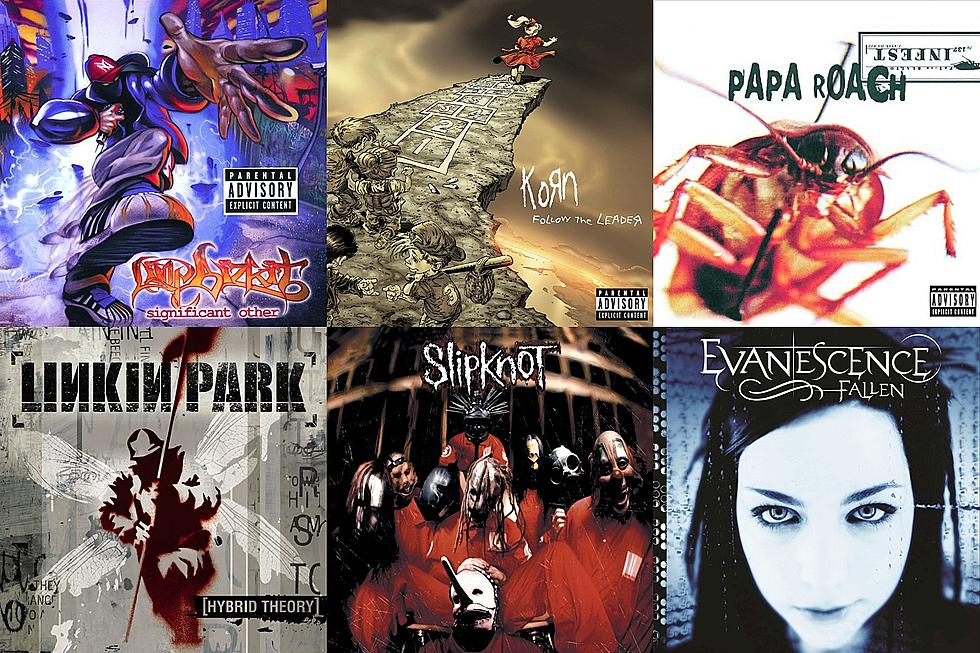
23 Years Ago: Deftones Release ‘White Pony’
Right from the start of their career, Deftones were praised for their emotional and musical resonance and, since they relied heavily on lunging beats, metallic staccato guitar riffs and screamed vocals, they were immediately grouped in with the nu-metal crowd, which also featured Korn, Coal Chamber and eventually Limp Bizkit.
That never sat well with Deftones, who always claimed to be heavily influenced by Depeche Mode and the Cure. Maybe hints of that were evident in the pained, melodic vocals of band’s first two albums, Adrenaline and Around the Fur, but it wasn’t until White Pony, which came out on June 20, 2000, that the band’s new wave influences really came across.
The heavy parts on the album are claustrophobic and pummeling, achieving aural overload with a serrated wall of noise, while the more atmospheric passages are despairing and evocative, bringing bands like The Cure and Depeche Mode into the game as serious influences.
“White Pony really marked our first real attempt to sound like everything we want to be,” drummer Abe Cunningham told me in the summer of 2000 while Deftones were touring for the album. “It’s the whole spectrum that we’re exploring on the record. It’s heavy, it’s melodic and it also has a lot of cool elements of different kind of styles we like in all kinds of music.”
Deftones, Live at Bizarre Festival (2000)
In some ways, the intense angst and vocal range on the album predated emo, while the crushing guitar parts revealed guitarist Stephen Carpenter’s fascination with Meshuggah, a band he had had recently discovered and which continues to inspire his songwriting.
“Through all these years, I’ve been waiting to hear someone that does something more pummeling, and it’s just not coming,” Carpenter said. “But their music is really intelligent, too and it’s like the answer to everything I want to hear when I listen to music. They inspire me to aspire for the best I can do whether it’s heavy or melodic. Whenever there’s a new Meshuggah album coming out, I, like, count the days.”
Throughout White Pony, vocalist Chino Moreno provided the perfect combination of strength and vulnerability, the band’s late-bassist Chi Cheng offered a solid bottom that adhered to the guitar melodies and drummer Abe Cunningham delivered an array of precision beats that range from frantic and furious to moody and ethereal.
But as much as Moreno’s vocals, it's Carpenter’s guitar playing that gave the band’s music its innovative punch. Whether aggressively sawing on a six string or strumming melancholy passages or plucking out eerie harmonics, the guitarist gave the music a voice far removed from that of his peers.
As much as it seems like the band strived to redefine itself with White Pony, Carpenter insists Deftones were just working with whatever crossed their minds and there was no master plan going into the record. He agreed that the band’s performance was shaped by years of touring and recording together, but denied there was ever a moment when he or Moreno decided to make a more new wave, trip-hop or alt-rock influenced record.
Deftones, "Change (In the House of Flies)" Music Video
“Everything we do is an accident,” Carpenter insisted. “We could try to plan shit out every day of our lives, but it would never matter because one minute we make a plan to do something, and the next minute those plans have changed. The only thing that we had on White Pony and stuck with the whole way through was the actual title of the record. Everything else was a constant process of evolution.”
There’s not always a correlation between how cohesive an album sounds and the spirit of the band members when they recorded in. In the case of White Pony, even when Deftones revel in jaw-dropping musical chemistry, there were times when the members stormed out on each other, didn’t show up to sessions or came moments away from erupting into full-on screaming matches.
“White Pony was really tough to make,” Moreno told me in 2011. “Stephen and I were butting heads a lot on that one. We definitely weren’t on the same page. There were some parts where I wanted to play guitar and I had written parts for the song and at first, that didn’t sit well with him. From that point on with every record until we did Diamond Eyes in 2010, there was always some kind of tension going on with the band that made it difficult to make records. But after Chi got into his accident, I guess we all looked at things from a different perspective and realized that there are things way more important than whether we agree on a guitar part or whether a song is heavy enough.”
In addition to being Deftones’ most critically acclaimed album, White Pony is the band’s most successful. The album debuted at No. 3 on the Billboard album chart and went platinum in July, 2002. There were three singles that all hit in the top 20 of the U.S. alternative chart, “Change (In the House of Flies),” “Back to School (Mini Maggit)” and “Digital Bath.” And while it wasn’t a single, “Elite” won a Grammy Award For Best Metal Performance in 2001.
Loudwire contributor Jon Wiederhorn is the author of Raising Hell: Backstage Tales From the Lives of Metal Legends, co-author of Louder Than Hell: The Definitive Oral History of Metal, as well as the co-author of Scott Ian’s autobiography, I’m the Man: The Story of That Guy From Anthrax, and Al Jourgensen’s autobiography, Ministry: The Lost Gospels According to Al Jourgensen and the Agnostic Front book My Riot! Grit, Guts and Glory.
Deftones Albums Ranked
More From Classic Rock 105.1










